Electric scooter rental companies have been hit with numerous suits over the last few years, but few will be as hard for the companies to handle as the new crop of disability suits. Recently, a class action was filed against the City of San Diego, Lime, Bird, and Razor for violating the rights of disabled people through the public’s use of their e-scooters. Can the courts come up with a better solutions than the defendants have? Or have the lines in the sand finally been drawn?
Plaintiffs Claim Scooter Companies Violate Their ADA Rights
The plaintiff in this lawsuit is the non-profit group Disabilities Rights California (DCA), on behalf of Alex Montoya, Rex Shirley, Philip Pressel, Aaron Gresson and other people with disabilities. DCA claims its members’ rights, as protected by the American with Disability Act (ADA), have been violated be defendants neglecting to keep the city’s sidewalks clear of dockless rental scooters. Those that are visually impaired, or use wheelchairs and walkers, are at a greater risk of harm and injury by these scooters than others, due to their disabilities, and they are asking for the courts to come up with a solution that will work for everyone, in light of their ADA protected rights.
Sidewalks Are Becoming a Safety Risk for the Disabled
According to local laws and scooter rental agreements, scooters are not be driven or parked on the sidewalks. However, scooter executives and city officials are both aware that these rules are broken daily by many scooter riders. In the lawsuit, DCA describes the challenges two of its members face on a regular basis due to the scooters. Montoya, born without arms and one leg, and Gresson, who is blind, state that because of their disability, they cannot prepare for being struck by oncoming scooters. “The dockless scooter riders often ride the Scooters on the sidewalk, turning the sidewalk into a vehicle highway rather than a space for safe pedestrian access and use,” the lawsuit said.
Not only are disabled individuals feeling assaulted, but they are also feeling trapped. In another example listed in the lawsuit, dockless scooters blocked the entrance to Shirley’s home, and he was therefore unable to leave his home. “People with disabilities who wish to travel in the City using the City’s walkways are being forced to either put their physical safety at risk or just stay home. This is not a choice that they should have to make,” the lawsuit said.
Will Cities and Scooter Companies Finally Turn on Each Other?
As the saying goes, “politics makes strange bedfellows”, but so do lawsuits. Both the scooter companies and the city are named as defendants. Historically, scooter companies rarely gave cities’ any notice before scattering their scooters throughout town, much to the dismay of many residents and city officials. Such lack of notice did not get the relationship between cities and scooter companies started on the right foot. But they have tried to work it out, for the promise of solving the “last mile dilemma” for public transportation takers.
Many cities kicked the scooter companies out. Now the ones that have retained the scooters are being hit by ADA lawsuits, which plaintiffs often win. Will cities continue to stick by scooter companies, even at the risk of lawsuits by their local citizens and public rights groups? Or will the cities finally turn on the scooter companies once and for all? This lawsuit will be a great test to their relationship.
If you or someone you love is hit by a motorized scooter driver, contact your local personal injury attorney. A lawyer can help you sort out the local laws, apply the facts in your case, and help get your expenses covered.
Related Resources:
- Find a Personal Injury Attorney Near You (FindLaw’s Lawyer Directory)
- What’s the Penalty for Hitting Someone on a ‘Bird’ Scooter (FindLaw Blotter)
- Bird Cries Foul Over Beverly Hills Ban (FindLaw Free Enterprise)




